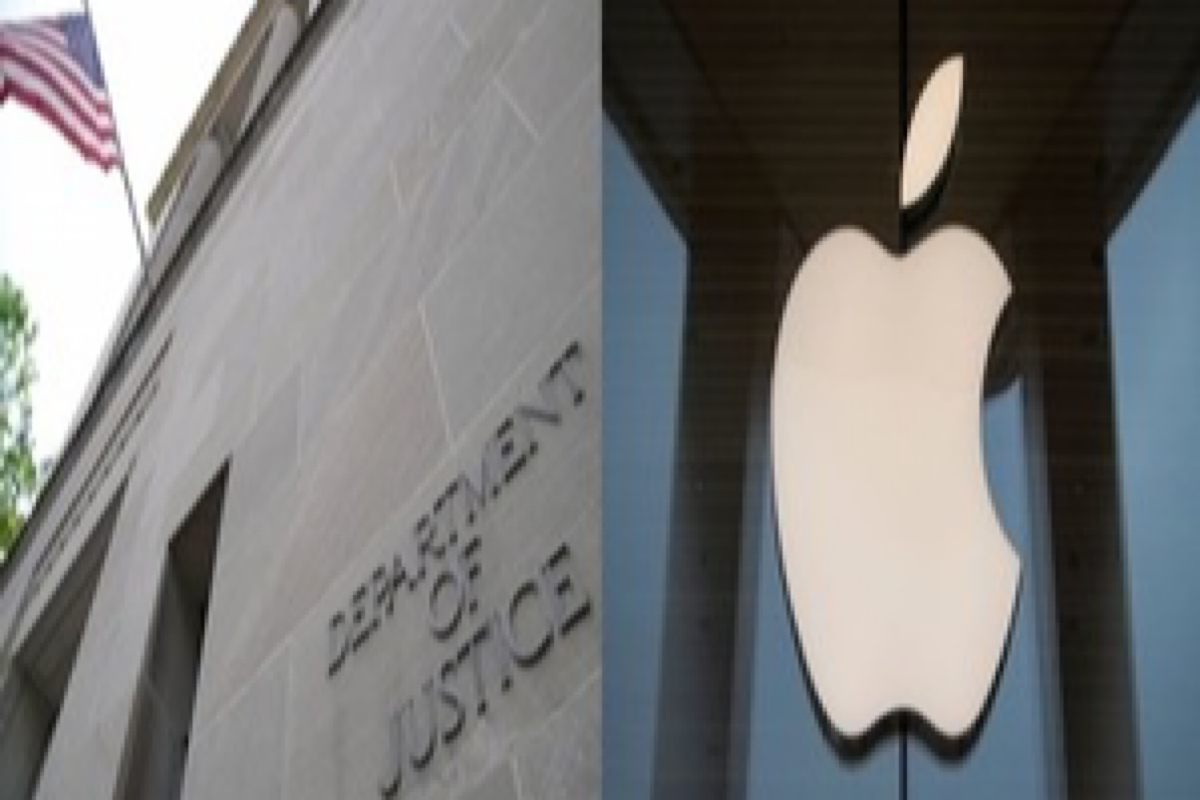Trade with Pakistan can help achieve 2047 goal
Prime Minister Narendra Modi wants India to become an advanced nation by 2047, exactly a hundred years after Independence.
The US Justice Department and 16 states on Thursday accused tech giant Apple of using exclusionary business practices to sustain the monopoly of its flagship product, the iPhone.

US files monopoly lawsuit against Apple
The US Justice Department and 16 states on Thursday accused tech giant Apple of using exclusionary business practices to sustain the monopoly of its flagship product, the iPhone.
A sweeping lawsuit filed jointly by them in a federal court in the state of New Jersey alleges that Apple maintains a monopoly in the smartphone business by selectively imposing contractual restrictions on developers of apps and withholding from critical access points that they could use to make their products work on other platforms just as well.
Advertisement
Further, the lawsuit alleges that the tech giant uses this monopoly to keep the cot of its product high for consumers.
Advertisement
Apple’s iPhone dominates the US market with a 65 per cent share. And it has made the company immensely rich, along with its other products.
“We allege that Apple has maintained monopoly power in the smartphone market, not simply by staying ahead of the competition on the merits, but by violating federal antitrust law,” US Attorney General Merrick Garland said in a statement.
“If left unchallenged, Apple will only continue to strengthen its smartphone monopoly. The Justice Department will vigorously enforce anti-trust laws that protect consumers from higher prices and fewer choices. That is the Justice Department’s legal obligation and what the American people expect and deserve.”
An Apple spokesperson said in a statement: “This lawsuit threatens who we are and the principles that set Apple products apart in fiercely competitive markets. If successful, it would hinder our ability to create the kind of technology people expect from Apple — where hardware, software, and services intersect. It would also set a dangerous precedent, empowering the government to take a heavy hand in designing the people’s technology.”
The government’s lawsuit alleges that Apple uses its smartphone monopoly to “engage in a broad, sustained, and illegal course of conduct. This anticompetitive behavior is designed to maintain Apple’s monopoly power while extracting as much revenue as possible”. The lawsuit lists the various ways Apple sustains this monopoly.
Here are five as summarized in a press statement issued by the US Department of Justice.
First, it prevents the growth of apps with broad functionality that would make it easier for consumers to switch between iPhone and its rival smartphones. Second, it blocks the development of cloud-streaming apps and services that would allow consumers to enjoy the same high-quality video games and other cloud-based applications as they would on iPhones.
Third, the lawsuit alleges that Apple has made the quality of cross-platform messaging extremely poor and less secure to force consumers to stay with iPhones. Fourth, the lawsuit alleges that Apple has limited the functionality of third-party smartwatches so that users who purchase the Apple Watch face substantial out-of-pocket costs if they dare to go with rival devices.
Fifth, and finally, Apple has prevented third-party apps from offering tap-to-pay functionality, inhibiting the creation of cross-platform third-party digital wallets.
Advertisement